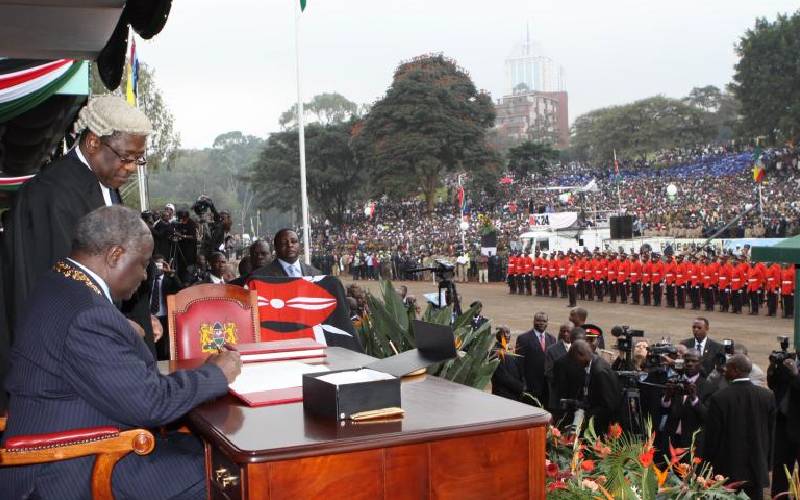×
The Standard e-Paper
Smart Minds Choose Us

Former President Mwai Kibaki leading nation in promulgating the 2010 Constitution at Uhuru Park. Left, then-Attorney General Amos Wako. August 27, 2010. [File, Standard]
Devolution has been a game-changer as development has been felt in every corner of the country in spite of several challenges.







